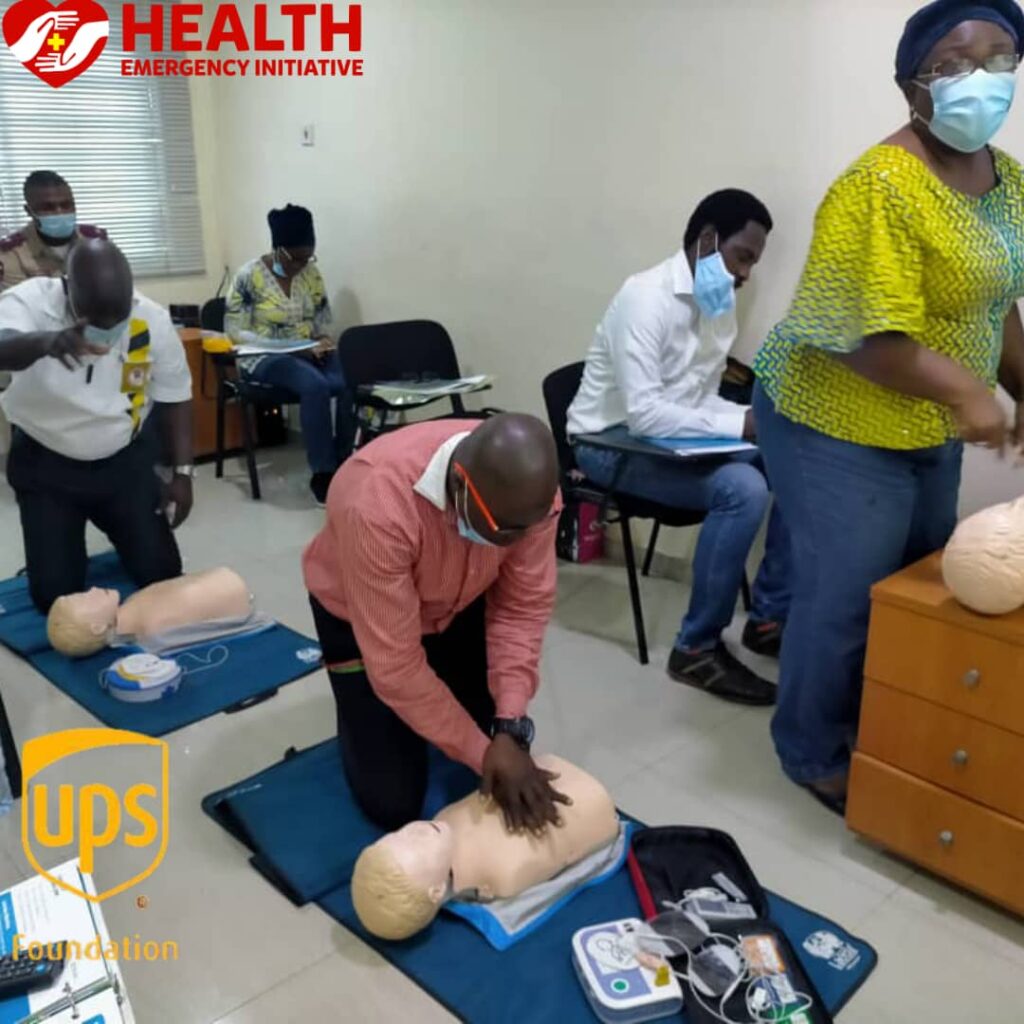
First response skills are essential to the provision of first aid and are taught ubiquitously. Particularly the “ABC”s of first aid, which focus on critical life-saving intervention, must be rendered before treatment of less serious injuries. ABC stands for Airway, Breathing, and Circulation. The same mnemonic is used by emergency health professionals. Attention must first be brought to the airway to ensure it is clear. Obstruction (choking) is a life-threatening emergency. Following evaluation of the airway, a first aid attendant would determine adequacy of breathing and provide rescue breathing if necessary.
Step-by-Step Process in First Response
- Before administering care to an ill or injured person, check the scene and the person. Size up the scene and be sure it is safe to enter, the number of persons involved, and if there is any other available help.
- If the Person is awake and responsive and there is no severe life-threatening bleeding: A first responder should obtain consent, and get the permission to provide care, whilst he reaches out to the AED or First aid kit. Appropriate PPE and gloves should also be used.
- If the person is breathing: The first responder sends for 112,767 and 122 or the designated emergency number and obtain an AED and first aid kit. All necessary information should be gathered from bystanders, as well as conduct a head-to-toe check.
- If the person is NOT breathing: Call should be put through the designated emergency medical services. The first responder also ensures that the person is face-up on a firm, flat surface such as the floor or ground. Begin CPR (starting with compressions) or use an AED if one is immediately available. Continue administering CPR until the person exhibits signs of life, such as breathing, an AED becomes available, or EMS or trained medical responders arrive on scene.
In summary, first response is a very crucial part of survival in our world of today. Studies show that for each minute someone goes without CPR, there is a 7 to 10 percent decrease in the likelihood of saving their life. And as such, there is the need for individuals in a community to commit to having basic knowledge in first response/first aid like Enitan, in order to be able to administer basic care to the sick, or accident victims to reduce levels of mortality especially associated with accident victims.
Send an email to [email protected] or call 07063985777 to sign up for Health Emergency Initiative‘s First Responders training and learn the lifesaving skills today.

